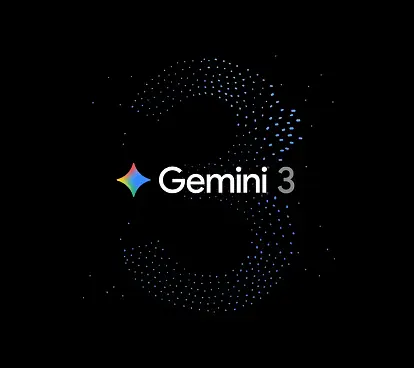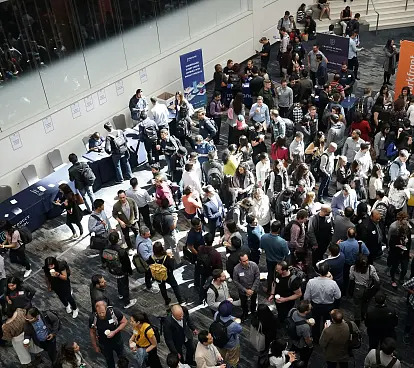
Pharmaceutical tenders: top 5 obstacles and how to overcome them
February 5, 2025
Pharmaceutical tenders are essential for large-scale procurement of healthcare products
Tenders are a crucial process in the pharmaceutical industry. They represent the mechanism through which governments, health authorities and healthcare organizations procure specific pharmaceutical products in the context of public health programs, social security systems and other initiatives that require large-scale purchasing. Such products may include drugs, vaccines, medical devices or other health-related items.
Although with significant differences between regions and sometimes between countries within the same region — as is the case in Europe — there is a growing trend in global pharmaceutical procurement, the need to contain spending to safeguard health services. This brings with it a number of challenges for companies, but also numerous opportunities. However, in order to take advantage of them, it is necessary to have the right tools o .To leverage these opportunities, having the right tools is essential.
How does a pharmaceutical tender work?
A pharmaceutical tender is broadly similar to a private auction. In it, a pharmaceutical laboratory has the opportunity to sell the supply of a product at a fixed price for a fixed period of time, which ensures it an advantageous position in the sector. In turn, bidders in such an auction can obtain the lowest possible purchase price for high-quality products. They can ensure the reliability of suppliers, maintain transparency in the process, minimize the opportunity of unlawful influences on purchasing decisions and achieve these objectives in the shortest possible time.
Naturally, laboratories compete with each other to win these contracts, in costly and convoluted processes subject to complex requirements, rapidly changing market conditions or extreme logistical management.
In general, bidding for tenders depends to a large extent on the number of competing manufacturers in the market. For bids for certain specific molecules or biosimilars, the number of bids is usually small, while for generic drugs it is considerably higher. This makes it necessary to make great efforts in order to compete for the most interesting tenders and to develop a unique value proposition, which makes your offer stand out and ensures competitiveness in terms of price and quality.
In the pharmaceutical industry, it is common practice to outsource bidding processes to specialized companies. These companies not only generate reports, alerts and notifications, but can also prepare all the necessary documentation to respond effectively to each tender. However, such a practice does not offer any improvement in the chances of success or any differentiation to companies that have to navigate between tenders to sell their products.
The real difference lies in the integration of new technologies in this process. Traditionally, digital management has focused on creating alerts based on specific keywords in order to identify relevant bids for each franchise or therapeutic line. However, with recent significant advances in the field of artificial intelligence, a new paradigm is now on the horizon.
This innovative approach allows for more accurate monitoring of bids and more data-driven bid preparation and business insights, resulting in tremendously more effective access strategies.

Challenges in Pharmaceutical Tenders
Typically, the identification of qualified suppliers is done through a prequalification process or by publishing an open tender, followed by a rigorous evaluation afterward.
Open public tenders can be announced through the media or, increasingly, through mass tendering portals on the Internet.
The latter dynamic allows suppliers, prequalified bidders and also potential bidders, even abroad, to be informed at an early stage, which in theory speeds up the process.
In practice, although it is a great step forward compared to traditional methods, it is not without its challenges, which the teams responsible for tenders in pharmaceutical companies have to face. What are the main ones?
1. It is a repetitive and tedious task
In a scenario as complex as the current one, manually identifying relevant opportunities can be hampered by the lack of efficiency in the collection of scattered information within portals. The need to maintain constant vigilance implies allocating significant resources to the review and monitoring of different platforms, which is impractical and generates a high degree of operational complexity.
In addition, in environments where there are no developed local teams, accessing and interpreting bid information can become even more challenging. Such a lack limits the accurate understanding of specific requirements, which negatively affects the ability of companies to prepare competitive proposals and meet the required standards.
2. Navigating Bidding Websites: A Complex Task
The inherent complexity of navigating bidding websites adds another level of challenge to the management of this process. These platforms often have multiple sections, subsections and documents, requiring bid management professionals to spend considerable time navigating the portal structure, rather than focusing on strategically analyzing and responding to opportunities.
This can compromise the quality of the submitted proposals due to incorrect data entry, inadvertent omissions, or misinterpretations of the requirements.

3. Automation is sometimes impossible
Addressing the challenges of automating pharmaceutical tendering is crucial for ensuring efficiency and accuracy. Although current technology might suggest that automating the scanning and extraction of data is a simple task, bidding websites introduce a number of barriers that complicate this process.
For example, the presence of security measures such as captchas and pop-up windows, designed to prevent unauthorized access and ensure data integrity, can also be a major stumbling block in the operation of conventional automation solutions.
In addition, the diversity in the documentation schemes used on these websites adds another layer of difficulty. The structure and format vary significantly from portal to portal and, in some cases, even within the same site.
4. Data consolidation presents difficulties
Integrating data from various sources becomes a significant challenge when managing the pharmaceutical business in multiple countries. This global environment involves dealing with a diversity of languages, as well as highly disparate document structures and data sources.
This complicates the decision-making process for pharmaceutical product managers and requires a meticulous approach to ensure effective and accurate integration.
5. Information is often lost
In the pharmaceutical industry, extracting insights from vast, heterogeneous data sets is an essential pillar. In this environment, strategic decisions not only shape, but directly delineate the supply chain, the efficiency of inventory management and the complex negotiations around drug pricing and reimbursement.
The intricate web of information collected presents a fundamental challenge: data diversity. This patchwork of heterogeneous information complicates the identification of patterns and trends, running the risk that many of them will be buried if their extraction is not approached with an appropriate strategy and specialized tools.

Innovation for competitive advantage in market access
Faced with this reality, pharmaceutical companies are forced to seek innovative solutions to optimize the bid management process.
The implementation of specialized technological tools and collaboration with strategic partners with local expertise can offer an effective response to these challenges, allowing for more automated and accurate monitoring tailored to the specific needs of each tender.
Technologies such as automation in the interconnection of data from different sources, web scraping, storage repositories, and advanced data analysis tools. These enable the efficient collection and processing of large datasets, identification of patterns not evident to the human eye, and provision of valuable insights for strategic decision-making.
The implementation of advanced analytical solutions and the development of artificial intelligence-based models not only facilitate the management of heterogeneous information but also improve companies' ability to anticipate changes in demand. This improves companies' ability to optimize the supply chain, and negotiate more advantageous commercial agreements. Ultimately, the ability to extract meaningful insights from the complexity of data in pharmaceutical market access processes becomes a key differentiator in an increasingly competitive business environment.
Find the Solution that Perfectly Fits Your Company's Needs
At SNGULAR, we are more than just your technology provider; we are a trusted partner committed to helping you not only meet but exceed your ever-evolving expectations.
If you're looking to enhance your company's performance, we can assist you in crafting bespoke solutions tailored to your specific business requirements. Working hand in hand with you, we strategically leverage technology to streamline your processes and propel your company to new heights.
Our latest news
Interested in learning more about how we are constantly adapting to the new digital frontier?

Insight
December 26, 2025
Ferrovial improves heavy construction efficiency with ConnectedWorks

Event
November 24, 2025
White Mirror 2025: the blank mirror reflecting what is yet to come

Tech Insight
November 20, 2025
Hello Gemini 3: The smartest and most powerful model to date has arrived

Event
October 20, 2025
Sngular is heading to the Global Health Exhibition 2025 in Riyadh, Saudi Arabia
